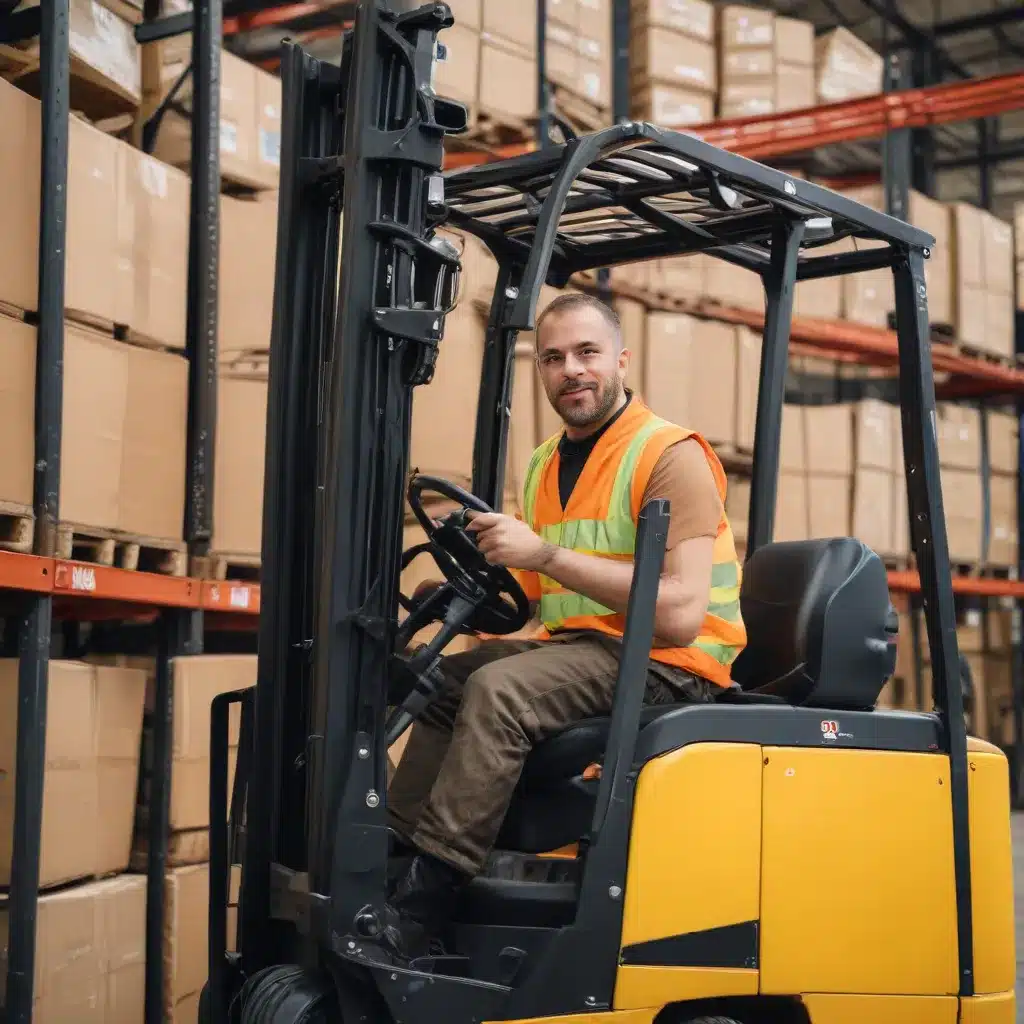
The Evolving Landscape of Forklift Operations
In the fast-paced world of warehousing, logistics, and material handling, forklift operators play a crucial role in maintaining efficiency, safety, and productivity. As the industry continues to evolve, driven by technological advancements and changing operational demands, forklift operators must embrace a mindset of continuous learning to stay ahead of the curve.
Remaining adaptable and proactive is no longer just a desirable trait but a necessity for success in this dynamic field. Forklift operators who commit to ongoing skill development and knowledge acquisition will not only enhance their own career prospects but also contribute to the overall success of their organizations.
Navigating the Forklift Technology Revolution
The forklift industry is undergoing a technological transformation, with innovations that are reshaping the way these vital machines are operated and managed. From autonomous and semi-autonomous forklifts to advanced telematics systems, the landscape is rapidly changing, and forklift operators must be prepared to adapt.
Embracing Automation and Autonomy
Autonomous and semi-autonomous forklifts are becoming increasingly prevalent, offering enhanced precision, efficiency, and safety. These advanced systems rely on a range of sensors, cameras, and sophisticated algorithms to navigate warehouse environments and perform tasks with minimal human intervention.
As forklift operators, it’s crucial to understand the capabilities and limitations of these automated systems, as well as how to effectively integrate them into existing workflows. Continuous training on the operation, maintenance, and troubleshooting of autonomous forklifts will be essential for maintaining a competitive edge.
Mastering Forklift Telematics
Telematics technology has revolutionized forklift fleet management, providing real-time data on operational performance, maintenance needs, and operator behavior. By leveraging this data-driven approach, forklift operators can optimize their work, identify areas for improvement, and contribute to the overall efficiency of the warehouse or distribution center.
Staying informed about the latest telematics solutions, understanding the data they provide, and learning to interpret and act on these insights will be key for forklift operators to thrive in this new era of data-driven decision-making.
Prioritizing Ongoing Forklift Safety and Maintenance
Forklift safety and maintenance have always been critical aspects of the job, but the evolving industry landscape demands an even greater focus on these areas. Forklift operators must be proactive in maintaining their skills, staying up-to-date with safety protocols, and ensuring the proper care and maintenance of the equipment they operate.
Continuous Forklift Safety Training
Forklift safety regulations and best practices are subject to regular updates, requiring forklift operators to continuously refine their knowledge and skills. Engaging in ongoing safety training, familiarizing themselves with new protocols, and maintaining a vigilant mindset can help forklift operators minimize the risk of accidents and maintain a safe work environment.
Proactive Forklift Maintenance
Proper forklift maintenance is not only a legal requirement but also a critical factor in maintaining operational efficiency and longevity. Forklift operators should be well-versed in the routine maintenance tasks, troubleshooting procedures, and early warning signs of potential issues. By staying proactive in this area, they can contribute to the overall health and reliability of the forklift fleet, reducing downtime and associated costs.
Embracing a Continuous Learning Mindset
Adopting a continuous learning mindset is essential for forklift operators who aspire to thrive in this evolving industry. By continuously expanding their knowledge, skills, and adaptability, forklift operators can position themselves as valuable assets to their employers and remain competitive in the job market.
Pursuing Ongoing Education and Certification
Forklift operators should actively seek out opportunities for ongoing education and certification. This may include attending industry events, workshops, and webinars, as well as pursuing additional certifications or licenses that demonstrate their commitment to professional development.
Staying informed about the latest industry trends, regulations, and technological advancements can help forklift operators anticipate and adapt to changes, ensuring they remain valuable and adaptable in their roles.
Developing a Growth Mindset
Embracing a growth mindset, where challenges are seen as opportunities for learning and improvement, can be a powerful tool for forklift operators. By approaching their work with a curious and open-minded attitude, they can continuously enhance their skills, adapt to new situations, and contribute to the overall success of their organizations.
Forklift operators who cultivate a growth mindset are more likely to seek out feedback, experiment with new techniques, and actively seek out opportunities to expand their knowledge and expertise.
The Rewards of Continuous Learning
Forklift operators who commit to continuous learning and professional development reap numerous benefits, both for themselves and their employers. By staying ahead of industry trends and technological advancements, they can:
- Enhance their job performance and become more valuable assets to their organizations
- Increase their earning potential and career advancement opportunities
- Contribute to a safer and more efficient work environment
- Maintain a competitive edge in a rapidly evolving industry
- Experience greater job satisfaction and personal fulfillment
Conclusion: Embracing the Future of Forklift Operations
In the dynamic world of forklift operations, continuous learning is no longer a luxury but a necessity. Forklift operators who embrace this mindset and actively work to enhance their skills, knowledge, and adaptability will be well-positioned to thrive in the years to come.
By staying informed about industry trends, mastering new technologies, prioritizing safety and maintenance, and cultivating a growth mindset, forklift operators can position themselves as indispensable assets to their employers and drive the success of their organizations.
The future of forklift operations is exciting, and those who are willing to invest in their own continuous learning will be the ones who shape this evolving landscape and reap the rewards of their commitment.

